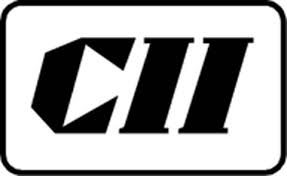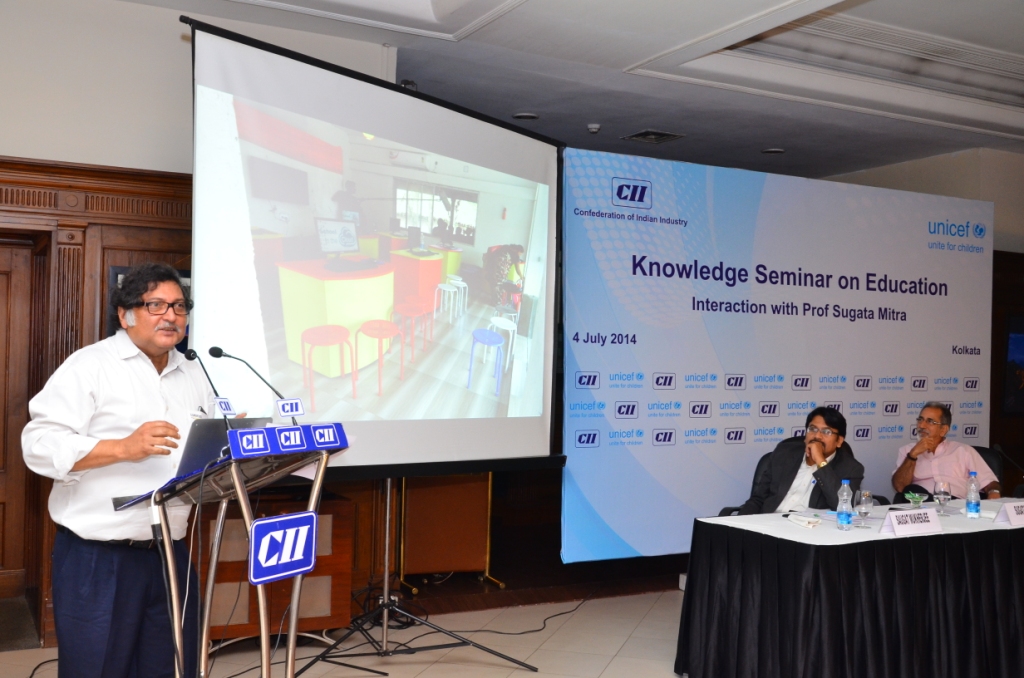 Kolkata: Eye-opener, life-time experience, enlightening, revelation… Those were the interjections that flowed from the mouth of those who heared educator Sugata Mitra explaining why the Internet can be the finest tool to free millions of uneducated children across India and beyond of the “prison of prescriptive way” of teaching. He cited the results of his own experiments to say that children do much better when they are unsupervised.
Kolkata: Eye-opener, life-time experience, enlightening, revelation… Those were the interjections that flowed from the mouth of those who heared educator Sugata Mitra explaining why the Internet can be the finest tool to free millions of uneducated children across India and beyond of the “prison of prescriptive way” of teaching. He cited the results of his own experiments to say that children do much better when they are unsupervised.
During a “Knowledge Seminar on Education” organized by CII Eastern Region in association with UNICEF, Prof Mitra raised a few basic questions: Is Education for All is at all an achievable target? Can unsupervised children produce better results? Should teachers leave children as they are?
The clarity and conviction with which he answered them all represented the core vision – self-ornaised learning environment (SOLE) – of the 52-year-old professor, who is best known for his million-dollar TED prize for his “Hole in the Wall” experiment and widely cited in works on literacy and education. He is Chief Scientist, Emeritus, at NIIT.
In a presentation, Professor Mitra, who teaches Educational Technology at the School of Education, Communication and Language Sciences at Newcastle University, England, made a fervent appeal for an end to the Victorian way of education that stifles free mind and denies right to question. He also said students perform better when they are in a group. “There happens an intellectual amplification in a group,” he said.
Mr Viresh Oberoi, Chairman, CII Eastern Region, said, “The CII-UNICEF CSR Hub is very special to me. I am associated with the CSR Hub since its inception. I have seen the formation of the Hub and witnessed its growth and development, as it went from being a knowledge repository to an implementing tool. CII is working towards achieving a sustainable and inclusive growth curve. The CSR Hub is one of our many executive arms for the same.”
“At the time of adoption of the Constitution in 1950, the aim was to achieve the goal of Universalisation of Elementary Education (UEE) within the next ten years i.e. by 1960. The target could not be achieved for various reasons.”
“A few schools still do not have school buildings and other teaching-learning facilities. The number of teachers and pupil-teacher ratio over time has improved significantly but still majorityof the schools in remote areas do not have adequate number of teachers and necessary infrastructure for teaching. Though the number of female teachers over time improved there is severe gender imbalance.”
“CII has been actively working in the areas of Policy Recommendations on Public-Private-Partnerships in School & Higher Education, Right to Education, Accreditation, Upgradation of School & Higher Education, etc.”
Mr Asadur Rahman, Chief of Field Office – West Bengal, UNICEF, was also present at the seminar.



